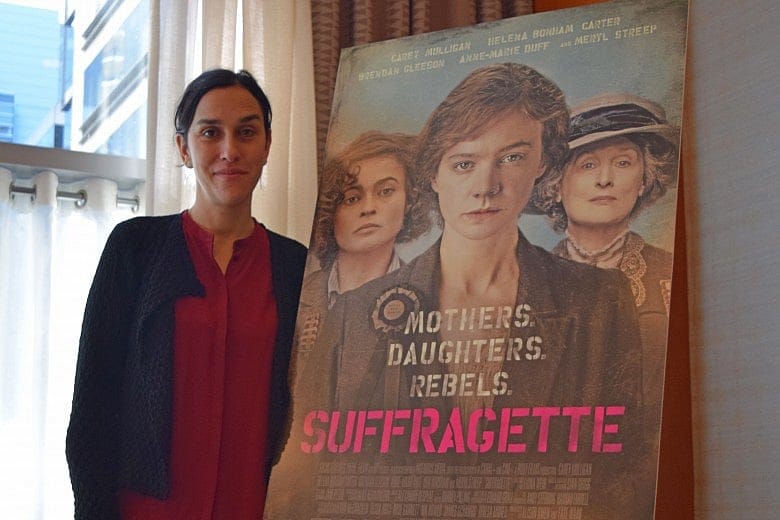Lawmakers, not lawbreakers: director Sarah Gavron on ‘Suffragette’

British film director Sarah Gavron's latest feature film, "Suffragette," which opened in the U.S. Friday, and debuts in East Coast theaters this weekend, is a gritty period-piece about the English women who struggled for nearly 70 years for the right to vote.
Starring Carey Mulligan, Helena Bonham Carter and Meryl Streep, Gavron's film opens just as the 2016 presidential campaign is picking up steam with female candidates running in both parties. Written by Abi Morgan, the film focuses on the complexities of civil disobedience in the face of injustice.

